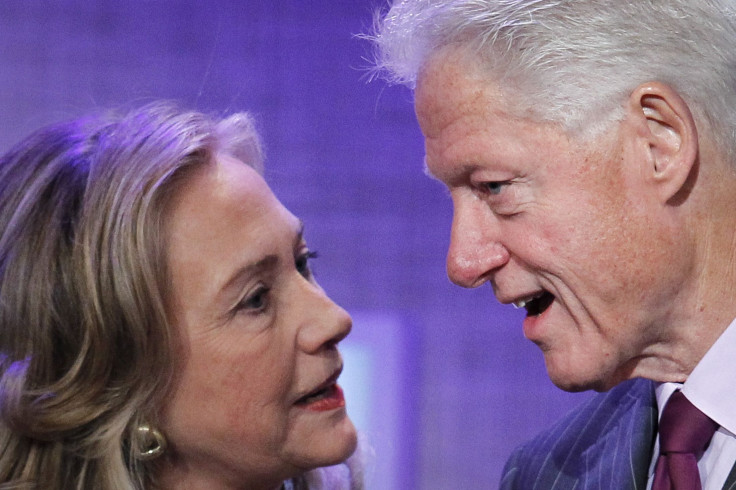Clinton Cash: Bill And Hillary Have Made $25 Million From Paid Speeches Since 2014, Financial Disclosure Forms Reveal

Former President Bill Clinton and Democratic presidential candidate Hillary Clinton have made at least $25 million from more than 100 paid speeches since the start of 2014, the couple revealed in financial disclosure forms filed Friday. The massive earnings were confirmed by a senior Clinton campaign official, the Washington Post said.
Hilary Clinton has charged hefty fees as a paid speaker after leaving her post as U.S. Secretary of State in early 2013. Since January 2014, she was paid up to $300,000 to speak at public universities including the University of Connecticut, the University of California at Los Angeles and the University of Nevada at Las Vegas. However, the funds were largely donated to the Bill, Hillary and Chelsea Clinton Foundation, the Washington Post reported.
Hillary Clinton’s steep price for university visits during a time of tuition hikes and budget cuts across higher education has drawn sharp criticism among some students and academic officials. But the former U.S. senator is still dominating the polls over all other potential candidates in the Democratic field.
Hillary Clinton has also delivered dozens of paid speeches to industry conventions and Wall Street banks. She continued to give paid speeches until just weeks before announcing she would seek the 2016 Democratic presidential nomination last month. Her disclosed financial information showed that, within the last year, Hillary Clinton spoke to a scrap metal conference in Las Vegas, a major bank in Canada and the American Camp Association in Atlantic City, the Washington Post said.
The financial information also showed that Hillary Clinton earned more than $5 million in royalties for her book “Hard Choices,” which was released in June, a campaign official confirmed with Politico.
Under federal law, presidential candidates must file their financial information with the Federal Election Commission within 30 days of announcing their candidacy, unless they seek an extension. Republican candidates Sen. Ted Cruz of Texas and Sen. Rand Paul of Kentucky both sought extensions instead of filing Friday, the Washington Post said.
© Copyright IBTimes 2025. All rights reserved.




















